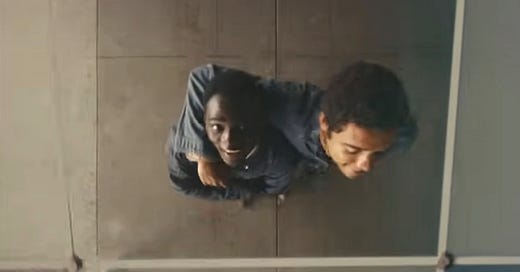[A month till the Academy Awards! And since I’m an Oscar nerd you’ll be getting my reviews of all the Best Picture nominees, and some of the other major ones, before the March 2 show. Reviews of A Complete Unknown, The Brutalist, and Conclave are already up.]
When I heard that Nickel Boys, the RaMell Ross film of Colson Whitehead’s novel, relies on poin…
Keep reading with a 7-day free trial
Subscribe to Roy Edroso Breaks It Down to keep reading this post and get 7 days of free access to the full post archives.



